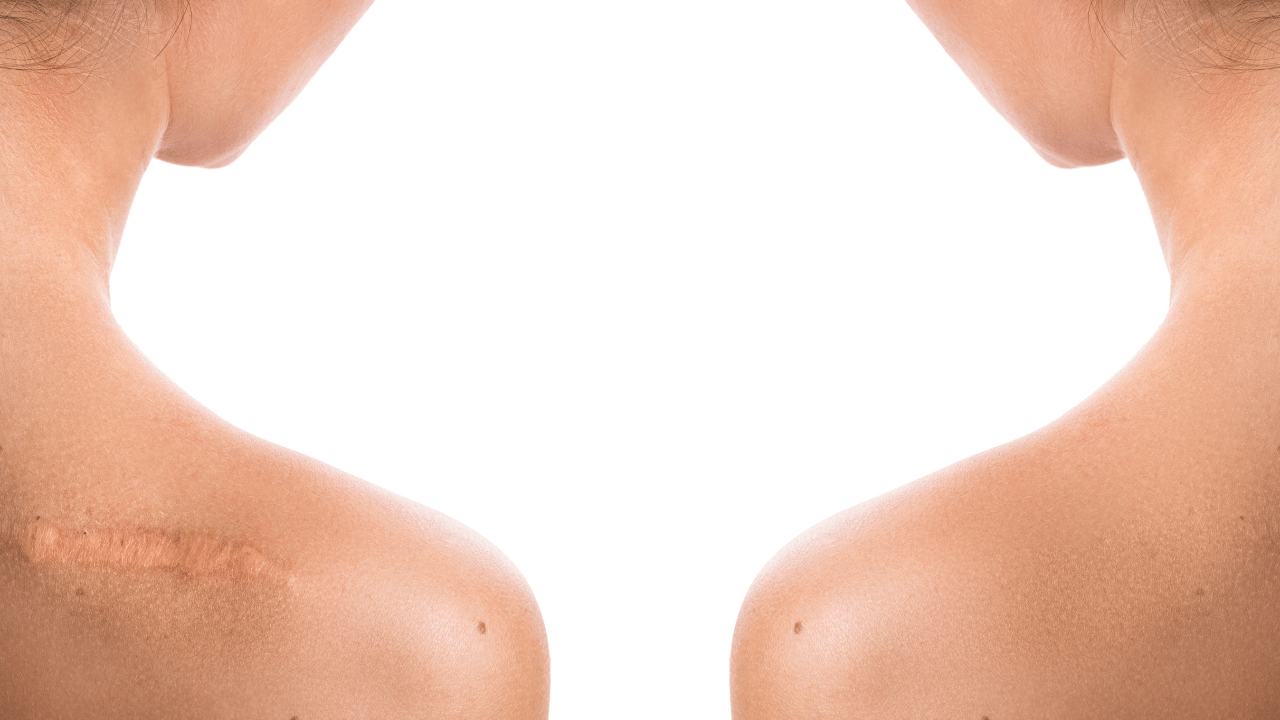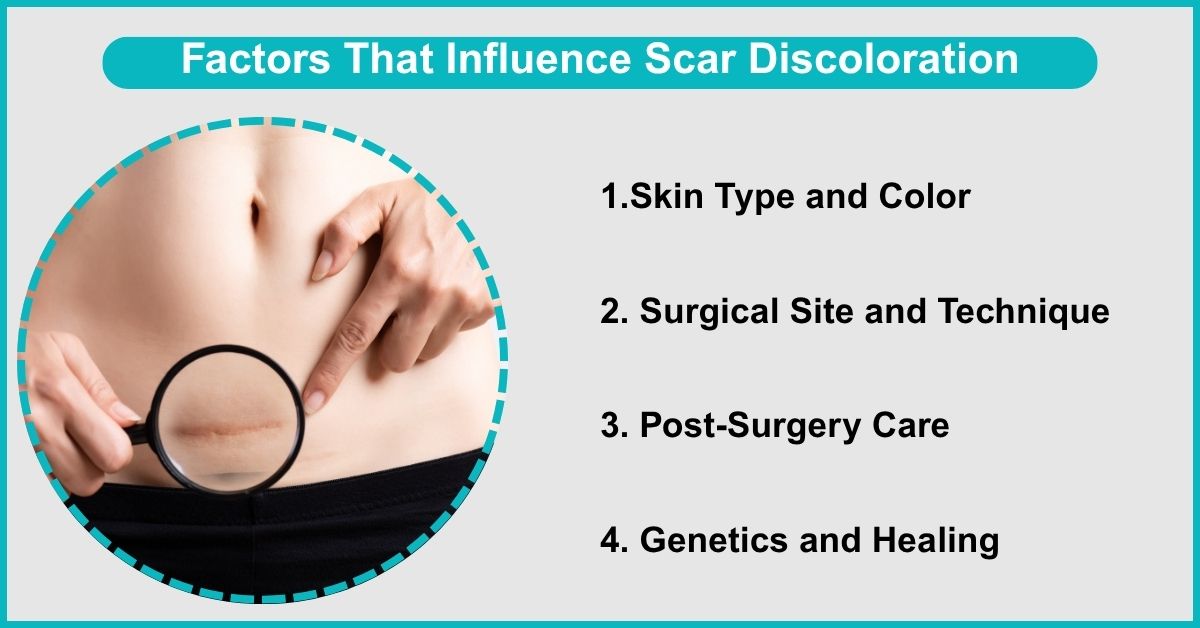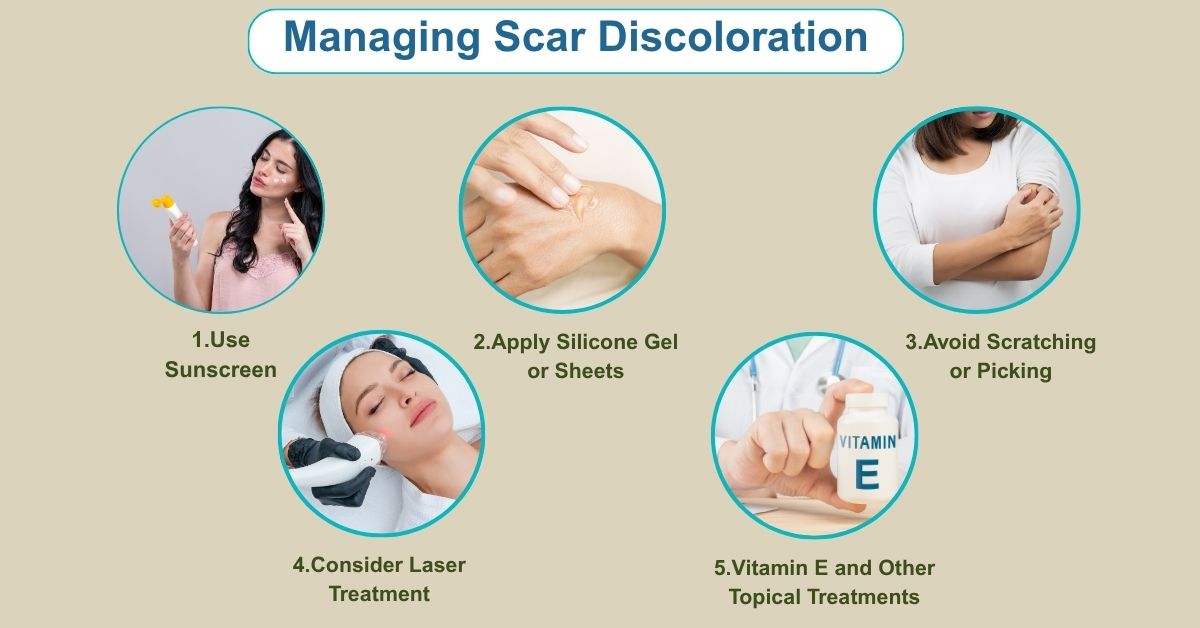Plastic surgery has gained immense popularity for improving appearance, enhancing self-esteem, and treating various conditions. While the benefits of plastic surgery are undeniable, one of the most common concerns for patients post-surgery is the appearance of scars. Scar discoloration, in particular, can cause concern as it may persist long after the procedure. Understanding why discoloration occurs, how long it lasts, and what steps can be taken to minimize its appearance is essential for anyone undergoing surgery.
In this blog, we’ll dive deep into the causes of scar discoloration, factors that affect it, and practical steps to manage it. We’ll also provide insights into the expertise of Dr. Vinay Jacob and Dr. Ashish Magdum, renowned plastic surgeons, to guide you through your post-surgery journey.
What Is Scar Discoloration After Plastic Surgery?

Scar discoloration refers to the change in color that occurs in a scar as it heals. Initially, a new scar may appear red, pink, or purple. As the healing process progresses, it may turn brown or even hyperpigmented, causing it to be more noticeable. In some cases, scars may become lighter than the surrounding skin tone, resulting in hypopigmentation.
The process of scar discoloration is influenced by various factors, including the type of surgery, the healing process, skin type, and individual healing responses.
Why Does Scar Discoloration Happen?
Scar discoloration happens as part of the natural healing process. When the skin is injured, it begins to form new tissue to repair the damage. The formation of collagen fibers helps rebuild the skin, but it’s often imperfect. As new blood vessels form to support healing, they can cause temporary redness and discoloration. Over time, the body works to regenerate skin pigment, but this process is not always uniform.
Several factors can influence the extent and type of discoloration:
- Sun Exposure: UV rays can cause scars to darken, as newly formed skin lacks the protective pigment melanin. This can lead to hyperpigmentation.
- Skin Type: Individuals with darker skin tones may be more prone to hyperpigmentation, while those with fair skin may experience hypopigmentation.
- Surgical Techniques: How the surgery is performed and how the wound is cared for plays a significant role in how the scar will heal. Poor surgical technique can result in more visible discoloration.
- Healing Process: Some individuals may experience faster or slower healing, which can affect the appearance of scars.
Factors That Influence Scar Discoloration
Several elements play a role in the intensity and duration of scar discoloration. Understanding these factors can help you take proactive measures to improve the appearance of your scars:

Skin Type and Color
As mentioned earlier, people with darker skin are more prone to developing hyperpigmented scars. In contrast, fair-skinned individuals may experience hypopigmentation. It’s essential to keep in mind that the darker the scar, the longer it may take to fade, and for some people, it may never fully match the surrounding skin tone.
Surgical Site and Technique
The area where surgery takes place, as well as the technique used by the surgeon, can affect the final appearance of the scar. For instance, scars from facial surgeries may be more prone to visible discoloration due to increased blood flow in the area. On the other hand, surgeries involving the torso or limbs may have scars that take longer to heal but may not be as noticeable.
Post-Surgery Care
How you care for your scar during the healing process is critical to minimizing discoloration. Following the post-surgery care instructions provided by your surgeon can make a big difference. Avoiding sun exposure, moisturizing the scar, and using silicone sheets or gels can all help prevent severe discoloration.
Genetics and Healing
Genetics also play a role in how well your skin heals after surgery. Some individuals may be more prone to developing keloids or hypertrophic scars, both of which can cause discoloration. If you have a history of problematic scarring, it’s important to discuss this with your surgeon beforehand.
Managing Scar Discoloration
While you cannot completely prevent scar discoloration, several steps can help minimize its appearance. Here’s how you can manage scar discoloration after plastic surgery:

1. Use Sunscreen
One of the best ways to protect your scar from discoloration is by keeping it out of the sun. Scars are highly sensitive to UV rays, which can cause them to darken. Using a broad-spectrum sunscreen with an SPF of 30 or higher can help protect your scar from sun damage and prevent further discoloration.
2. Apply Silicone Gel or Sheets
Silicone is one of the most effective treatments for scars. Silicone gel sheets or silicone gel can help hydrate the scar, promote healing, and reduce pigmentation. Applying these treatments as directed by your surgeon can significantly improve the appearance of the scar over time.
3. Avoid Scratching or Picking
It’s important to avoid irritating the scar during the healing process. Scratching or picking at the scar can lead to further damage and increase the likelihood of pigmentation problems. Keeping the area moisturized can help prevent itching and discomfort.
4. Consider Laser Treatment
If discoloration persists, laser treatments can be an option. Lasers like fractional laser and intense pulsed light (IPL) can target hyperpigmented areas of the scar and help restore skin tone. Your surgeon will be able to recommend the best treatment based on your specific situation.
5. Vitamin E and Other Topical Treatments
Vitamin E oil is commonly recommended for scar healing. However, research on its effectiveness for discoloration is mixed. You can also try other topical treatments like hydrocortisone creams or hydroquinone, which can help lighten dark spots. Always consult with your surgeon before trying any new treatment.
Expertise of Dr. Vinay Jacob and Dr. Ashish Magdum

When undergoing plastic surgery, choosing the right surgeon is critical for achieving the best possible outcome. Dr. Vinay Jacob and Dr. Ashish Magdum are highly skilled and experienced plastic surgeons committed to delivering exceptional results. With a patient-centric approach, both doctors understand the concerns patients have regarding scar formation and discoloration.
They utilize state-of-the-art techniques and the latest advancements in plastic surgery to ensure optimal healing and minimize scarring. Whether you’re undergoing a cosmetic procedure like a tummy tuck or a reconstructive surgery such as breast reconstruction, Dr. Jacob and Dr. Magdum provide personalized care every step of the way.
FAQs on Scar Discoloration After Plastic Surgery
1. How long does it take for scar discoloration to fade?
Scar discoloration can last anywhere from a few months to a year. Some scars may fade naturally, while others may require treatments like laser therapy or silicone sheets to reduce discoloration.
2. Can I speed up the healing process of my scar?
While you can’t completely speed up healing, following post-surgery instructions, using sunscreen, moisturizing, and avoiding sun exposure can help the healing process along.
3. Are there any treatments for dark scars?
Laser treatments like fractional laser or IPL are effective for lightening dark scars. Additionally, silicone gel sheets and topical treatments can help improve the appearance of hyperpigmented scars.
4. Is it normal for my scar to look worse before it gets better?
Yes, this is quite common. Scars may initially appear darker, raised, or more noticeable before they begin to fade and flatten. This is a normal part of the healing process.
5. Can scars become permanent?
While scars are permanent, their appearance can significantly improve over time. With proper care and treatments, the discoloration and texture of scars can be minimized.
Scar discoloration is a natural part of the healing process after plastic surgery, and while it can be frustrating, it’s important to remember that it will improve with time. By following proper aftercare and using treatments recommended by your surgeon, you can minimize the impact of discoloration. Dr. Vinay Jacob and Dr. Ashish Magdum, with their expertise, are here to guide you through every step of your recovery, ensuring that you feel confident and comfortable in your skin again.



